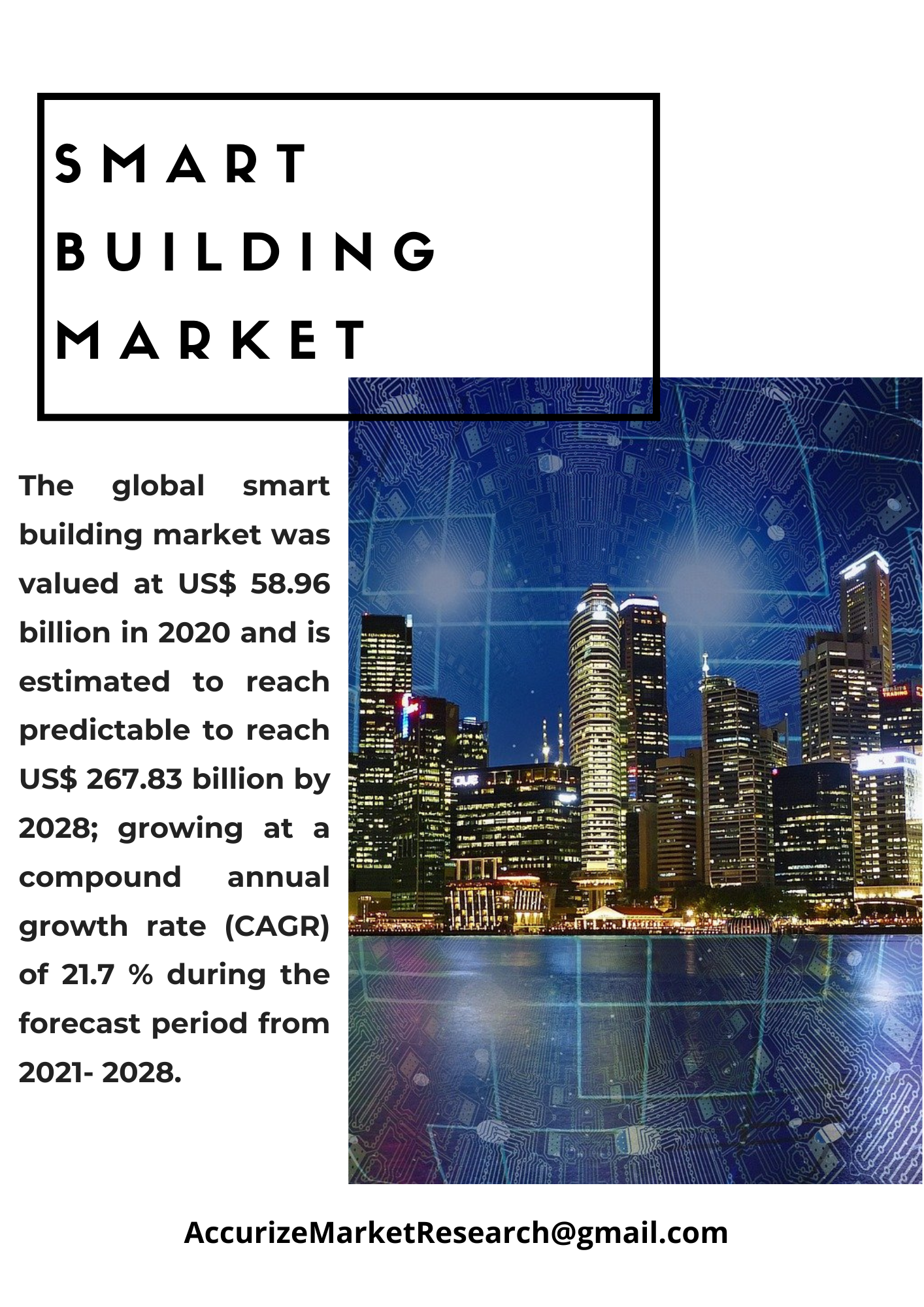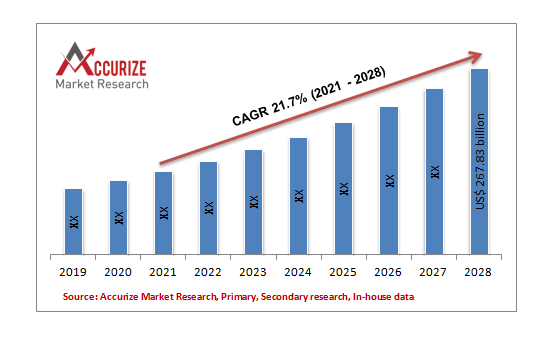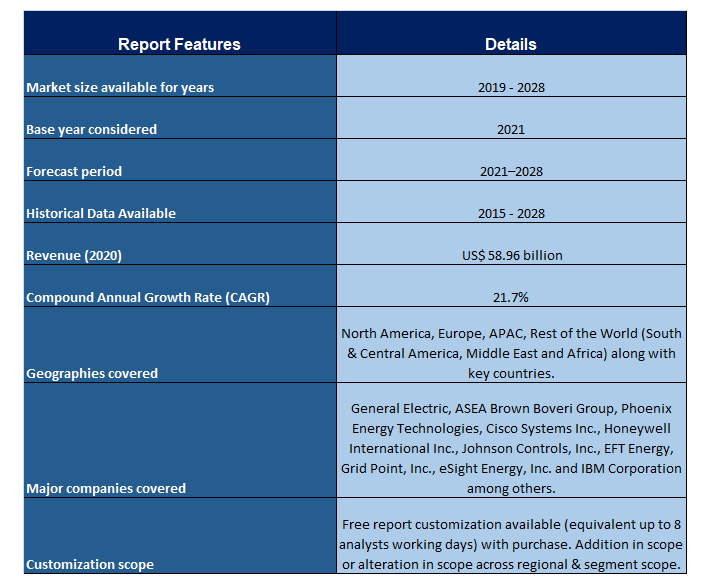Smart Building Market Global Scenario, Market Size, Outlook, Trend, and Forecast, 2019 – 2028
The global smart building market was valued at US$ 58.96 billion in 2020 and is estimated to reach predictable to reach US$ 267.83 billion by 2028; growing at a compound annual growth rate (CAGR) of 21.7 % during the forecast period from 2021- 2028. Smart building involves installation and usage of advanced and integrated system which includes telecommunication, life safety for fire crisis, building automation, lighting, HVAC, water supply and other related systems. These buildings are designed based on different approaches.

Market Dynamics
Demand of IoT- based building system is growing, awareness for efficient space utilization, energy efficient systems, building by laws structure along with standards and regulations are the major drivers for increasing demand of smart building market. Initiatives led by government for Building Energy Management System, Intelligent Security System and Infrastructure Management System, demand of higher consumption of energy are expected for advanced and efficient technology to reduce the carbon footprints. However, lack of helpful coordination including concerns for security and data privacy are the restraining factors for smart building market. Also, lack of skilled personnel for smart building construction restrains the market rise. Hackers can infiltrate into the network and snip valuable data or take control like cybercriminals intrude passenger lifts, gain access to security feeds from CCTV and disrupt power supplies of entire structure. Moreover, well-planned cyber threat may expose data storage, servers, and employee or customer information which could be used for nasty purposes. According to IoT and smart building report available by IBM, 50% of water and energy is consumed by commercial and real estate buildings. In addition, reports by Schneider Electric Whitepaper shows 36% carbon emission comes from buildings.
The global smart building market is segmented based on solutions, building type, services and region. By solution, it is categorised into building infrastructure management, security and emergency management, IWMS, energy management and network management. Based on solution, it is bifurcated into residential, commercial and industrial. On the basis of services, it is categorised support, consulting & maintenance and integration & deployment. On regional insights, it is categorized into North America (US, Canada, Rest of North America), Asia Pacific (China, India, South Korea, Rest of Asia Pacific), Europe (UK, Russia, Germany, Rest of Europe), Rest of the World (Latin America and Middle East & Africa).

Key players involved in the global smart building market includes General Electric, ASEA Brown Boveri Group, Phoenix Energy Technologies, Cisco Systems Inc., Honeywell International Inc., Johnson Controls, Inc., EFT Energy, Grid Point, Inc., eSight Energy, Inc. and IBM Corporation among others.
Segmentation and Scope of the Global Smart Buildings Market
Global Smart Buildings Market is segmented into type, application, services and region.
By Solutions
- Building infrastructure Management
- Security and Emergency Management
- Energy Management
- Network Management
- IWMS
- Parking Management System
- Smart Water Management System
- Elevators and Escalators Management System
- Access Control System
- Video Surveillance System
- Safety System
- HVAC Control System
- Lighting System
By Building Type
- Residential
- Industrial
- Commercial
- Office buildings
- Retail and public assembly buildings
- Hospital and healthcare facilities
- Airports and railway stations
- Others.
By Services
- Consulting
- Integration and deployment
- Support and maintenance
By Region
- North America
- US
- Canada
- Rest of North America
- Europe
- UK
- Germany
- Europe
- Italy
- Rest of Europe
- Asia Pacific
- Japan
- China
- South Korea
- Rest of Asia Pacific
- Rest of World
- Middle East & Africa
- Saudi Arabia
- South Africa
- Rest of Middle East & Africa
- Middle East & Africa
- Latin America
- Mexico
- Brazil
- Rest of Latin America

Prominent players in the Global Smart Building market includes
- General Electric
- ASEA Brown Boveri Group
- Phoenix Energy Technologies
- Cisco Systems Inc.
- Honeywell International Inc.
- Johnson Controls, Inc.
- EFT Energy
- Grid Point, Inc.
- eSight Energy, Inc.
- IBM Corporation
Payment Options